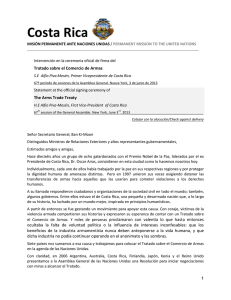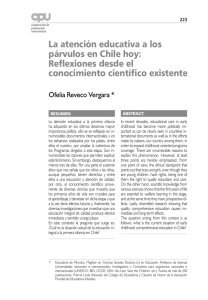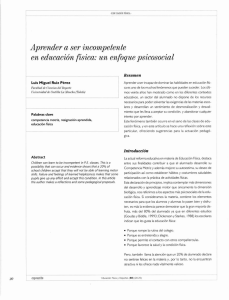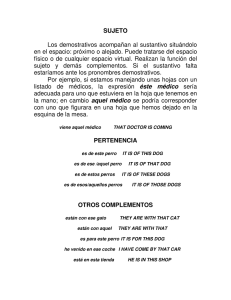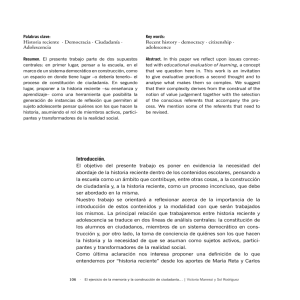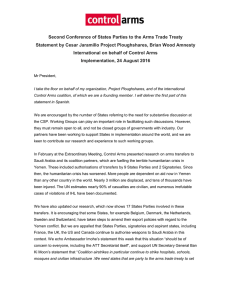Costa Rica - Arms Trade Treaty
Anuncio
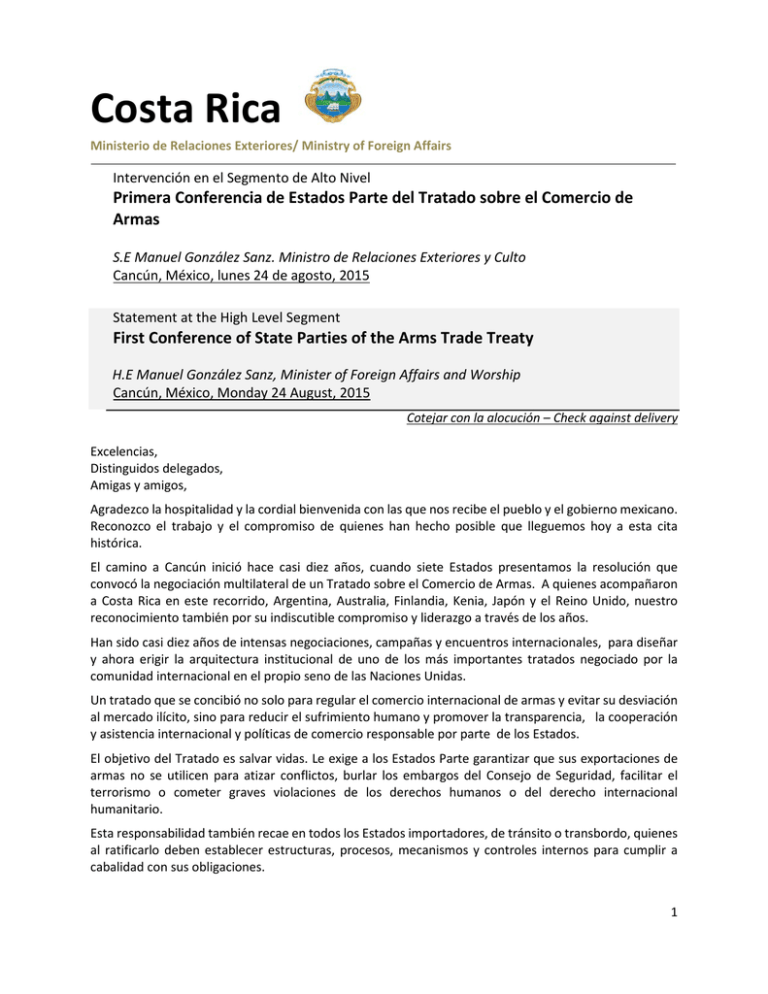
Costa Rica Ministerio de Relaciones Exteriores/ Ministry of Foreign Affairs Intervención en el Segmento de Alto Nivel Primera Conferencia de Estados Parte del Tratado sobre el Comercio de Armas S.E Manuel González Sanz. Ministro de Relaciones Exteriores y Culto Cancún, México, lunes 24 de agosto, 2015 Statement at the High Level Segment First Conference of State Parties of the Arms Trade Treaty H.E Manuel González Sanz, Minister of Foreign Affairs and Worship Cancún, México, Monday 24 August, 2015 Cotejar con la alocución – Check against delivery Excelencias, Distinguidos delegados, Amigas y amigos, Agradezco la hospitalidad y la cordial bienvenida con las que nos recibe el pueblo y el gobierno mexicano. Reconozco el trabajo y el compromiso de quienes han hecho posible que lleguemos hoy a esta cita histórica. El camino a Cancún inició hace casi diez años, cuando siete Estados presentamos la resolución que convocó la negociación multilateral de un Tratado sobre el Comercio de Armas. A quienes acompañaron a Costa Rica en este recorrido, Argentina, Australia, Finlandia, Kenia, Japón y el Reino Unido, nuestro reconocimiento también por su indiscutible compromiso y liderazgo a través de los años. Han sido casi diez años de intensas negociaciones, campañas y encuentros internacionales, para diseñar y ahora erigir la arquitectura institucional de uno de los más importantes tratados negociado por la comunidad internacional en el propio seno de las Naciones Unidas. Un tratado que se concibió no solo para regular el comercio internacional de armas y evitar su desviación al mercado ilícito, sino para reducir el sufrimiento humano y promover la transparencia, la cooperación y asistencia internacional y políticas de comercio responsable por parte de los Estados. El objetivo del Tratado es salvar vidas. Le exige a los Estados Parte garantizar que sus exportaciones de armas no se utilicen para atizar conflictos, burlar los embargos del Consejo de Seguridad, facilitar el terrorismo o cometer graves violaciones de los derechos humanos o del derecho internacional humanitario. Esta responsabilidad también recae en todos los Estados importadores, de tránsito o transbordo, quienes al ratificarlo deben establecer estructuras, procesos, mecanismos y controles internos para cumplir a cabalidad con sus obligaciones. 1 Se trata, en pocas palabras, de que “todos” asumamos la responsabilidad que nos corresponde para evitar que las armas, especialmente las pequeñas y ligeras y sus municiones, caigan en las manos equivocadas y continúen siendo los disparadores de la violencia armada, que tantos estragos causan en el mundo. Por ello, Costa Rica continuará insistiendo en que el Tratado sobre el Comercio de Armas sea fiel a los principios que lo inspiraron y estar a la altura de los desafíos. No basta con expresar consternación por el derramamiento de sangre y la devastación que vemos todos los días en las calles de Centroamérica y el Caribe, o bien en Darfur, Libia, Sudán del Sur, Yemen, Siria y otros países en África y Oriente Medio; debemos controlar de manera más eficaz la producción y el comercio de las armas, especialmente las pequeñas y ligeras; debemos también resistir las presiones de ciertos Estados por definiciones imprecisas, exclusiones o resquicios que nos impidan conocer, por ejemplo, los volúmenes o cantidades reales de armas convencionales que se comercian cada año. Sin transparencia, este Tratado perderá su razón de ser. Basta de excusas y subterfugios. Porque creemos en su potencial, Costa Rica continuará trabajado sin descanso, para que el Tratado cuente con una sólida estructura institucional, que le permitirá materializar sus objetivos y tener un impacto real en la vida de las personas. En las cinco reuniones preparatorias a este encuentro, mi país ha abogado por una Secretaría robusta, capaz de apoyar la plena aplicación del Tratado; reglas de procedimiento claras, que aseguren la transparencia y la participación activa de la sociedad civil en los procesos y que nos permitan tomar decisiones, a través del voto, cuando el consenso no sea posible. Hemos solicitado garantías de que los informes sobre las transferencias de armas sean abiertos y accesibles al público, lo que promoverá aún más transparencia y servirá también como medida de fomento a la confianza. Nos hemos esforzado por contar con reglas de financiamiento justas y sostenibles, que nos permita a los países de ingreso medio, como el nuestro, contribuir en la medida de nuestras capacidades al mismo tiempo que trabajamos en su plena aplicación a nivel nacional. En este sentido, en Costa Rica establecimos una Comisión Interinstitucional para el cumplimento de las obligaciones contraídas con el Tratado. Esta Comisión es liderada por el Ministerio de Relaciones Exteriores y Culto y cuenta con la participación de representantes del poder legislativo, de los Ministerios de Seguridad, Economía, Industria y Comercio, Hacienda, Justicia y Paz, así como representantes de la sociedad civil organizada. Esta Comisión establecerá las estructuras, procesos y mecanismos necesarios para la plena y efectiva implementación del Tratado en Costa Rica. Nuestro interés es convertir a Costa Rica en un modelo de implementación y buenas prácticas, a fin de dar cooperación y asistencia a nivel regional e internacional; por lo que agradecemos la cooperación brindada por la Unión Europea. Sin embargo, el compromiso deber ser de todos. Señoras y señores, Estamos obligados a colocar la protección de la vida humana y los derechos humanos en el centro de nuestros debates. Costa Rica apoya firmemente la propuesta del Alto Comisionado de Derechos Humanos de las Naciones Unidas, Sr. Zeid Ra´ad Al Hussein, que condiciona para la venta de armas que el Estado importador acepte el envío de un pequeño equipo de observadores de los derechos humanos, en aquellos casos en los que exista una preocupación relativa a este tema. Costa Rica insta a los Estados Parte a estudiar esta idea innovadora, así como a todos los Estados a que se firmen y se adhieran al Tratado y lo cumplan fielmente. En especial, hacemos un llamado a los tres 2 productores más grandes de armas en el mundo a firmar y ratificar el Tratado lo antes posible, a fin de lograr el objetivo final de su universalización y aplicación plena. Hemos alcanzado logros importantes, pero nuestro trabajo no ha terminado. Falta todavía mucho por andar. Y aún cuando nos esperan muchos obstáculos y monumentales retos, sabemos que si trabajamos juntos, con buena fe y entusiasmo, lograremos concretar los ideales que inspiraron este Tratado histórico y que nos llevaron a coincidir en Cancún este día con la esperanza de que es posible si tenemos verdadero compromiso. Muchas gracias. Excellences, Distinguished delegates, Friends, Let me start by expressing our sincere appreciation for the cordial hospitality with which the people and government of Mexico have received us today. We also wish to recognize the efforts and commitment of all those who have made it possible for us to be here at this historic event. The road to Cancun began almost ten years ago when seven States presented the resolution that called for multilateral negotiations on an Arms Trade Treaty. To those States, which accompanied Costa Rica on this journey, namely Argentina, Australia, Finland, Kenya, Japan and the United Kingdom, we express our appreciation for your undisputed commitment and leadership throughout the years. It's been almost ten years of intense negotiations, campaigns, and international gatherings to design and now build the institutional foundation of one of the most important treaties negotiated by the international community within the United Nations itself. This treaty was conceived not only to regulate the international trade of conventional weapons and to prevent diversion to the illicit market, but also to reduce human suffering and to promote transparency, international cooperation and assistance, and responsible arms trade policies on the part of States. The aim of the Arms Trade Treaty is to save lives. It requires States Parties to ensure that their arms exports and transfers will not be used to fuel conflict, circumvent Security Council embargoes, facilitate terrorism or commit other serious violations of human rights and international humanitarian law. This responsibility also falls on all importing, transit or transshipment States, who, by virtue of ratifying the Treaty, must establish structures, processes, mechanisms and internal controls to fully comply with the Treaty obligations. In short, we "all" must assume our part of the responsibility in order to prevent weapons, especially small arms and light weapons and their ammunition, from falling into the wrong hands and thus continue to be the triggers of armed violence, which has created havoc in the world. Therefore, Costa Rica will continue to stress that the Arms Trade Treaty must be faithful to the principles that inspired it as well as live up to the challenges ahead. It is not sufficient to express shock at the bloodshed and devastation that we see every day on the streets of Central America and the Caribbean, or in Darfur, Libya, South Sudan, Yemen, Syria and other countries in Africa and the Middle East. Rather we must control more effectively the production and trade of weapons, especially small arms and light weapons; we must also resist pressures from certain States for vague definitions, exclusions or loopholes that prevent us from knowing, for example, actual quantities of conventional weapons that are traded each year. Without such transparency this treaty will quickly lose its ‘raison d’etre’. Enough of excuses and ambiguities. 3 Because we believe in its potential, Costa Rica will continue to work tirelessly to ensure that the Treaty has a solid institutional framework that will allow for its objectives to become full realities and thus have a genuine impact on the lives and livelihoods of people. In the five preparatory meetings prior to this event, my country has made the case for a strong secretariat capable of supporting the full implementation of the Treaty; clear rules of procedure to ensure transparency and the active participation of civil society; rules that would allow us to make decisions through voting when consensus cannot be reached. We seek assurances that reports on arms transfers will be open and accessible to the public, which will further promote transparency and also serve as a confidence building measure. We have strived to have fair and sustainable financial rules that would allow middle-income countries, such as ours, to contribute to the best of our abilities while also allowing us to work on the Treaty’s full implementation at the national level. In this regard, Costa Rica has established an Inter-institutional Commission for the fulfillment of the obligations of the Treaty. This commission is led by the Ministry of Foreign Affairs and includes the participation of representatives of the legislature, including the Ministries of Security, Economy, Industry and Trade, Treasury, Justice and Peace, as well as representatives of civil society organizations. This Commission will establish the necessary structures, processes and mechanisms for the full and effective implementation of the Arms Trade Treaty in Costa Rica. It is our wish that Costa Rica becomes a model of implementation and best practices such that we might provide cooperation and assistance to other States at regional and international levels. In this light, we would like to express our appreciation to the European Union for the cooperation that they have provided to us. Nevertheless, we all must be committed to the full and effective implementation of the Treaty. Ladies and Gentlemen, We must place the protection of human life as well as the promotion of human rights at the core of our debates on arms transfers. Costa Rica firmly supports the proposal of the United Nations High Commissioner for Human Rights, Mr. Zeid Ra'ad Al Hussein, mandating as a condition of sale the acceptance of a small human rights monitoring team in those cases where there are concerns about human rights in States that seek to purchase weapons. Costa Rica urges States Parties to consider this innovative idea while calling upon all States to sign and ratify the Treaty as well as adhere to its provisions strictly to the letter. In particular, we call on the three largest arms producers in the world to sign and ratify the ATT as quickly as possible in order to achieve the ultimate goal of its universalization and full and effective implementation. We have made important achievements, but our work is not over. There is still far to go. And even though there will be many obstacles and monumental challenges ahead, we know that if we work together, in good faith and with enthusiasm, we will realize the ideals that inspired this historic Treaty and that has led us all to be here in Cancun today in the hopes that change is possible when we are truly committed. Thank you. 4
